Top 10 Best AI-Generated Virtual Model Influencers in the World 2025
By ICON TEAM | Published on Oct 17, 2025
AI-generated virtual model influencers have changed social media in a big way by combining hyperrealistic images, stories, and corporate collaborations with a level of flexibility and cost-effectiveness that has never been seen before. These virtual people will be the most popular on Instagram and TikTok by 2025. They will have millions of followers and will challenge traditional ideas of attractiveness, representation, and authenticity. They show off lives that Gen Z wants to live, from fashion shows to social action. This list shows the top 10 influencers, determined by a mix of follower counts, engagement rates, brand partnerships, and cultural impact. It shows how each one has made a unique contribution to the influencer ecosystem.
List Of Top 10 Best AI-Generated Virtual Model Influencers in the World 2025:
1. Lil Miquela:
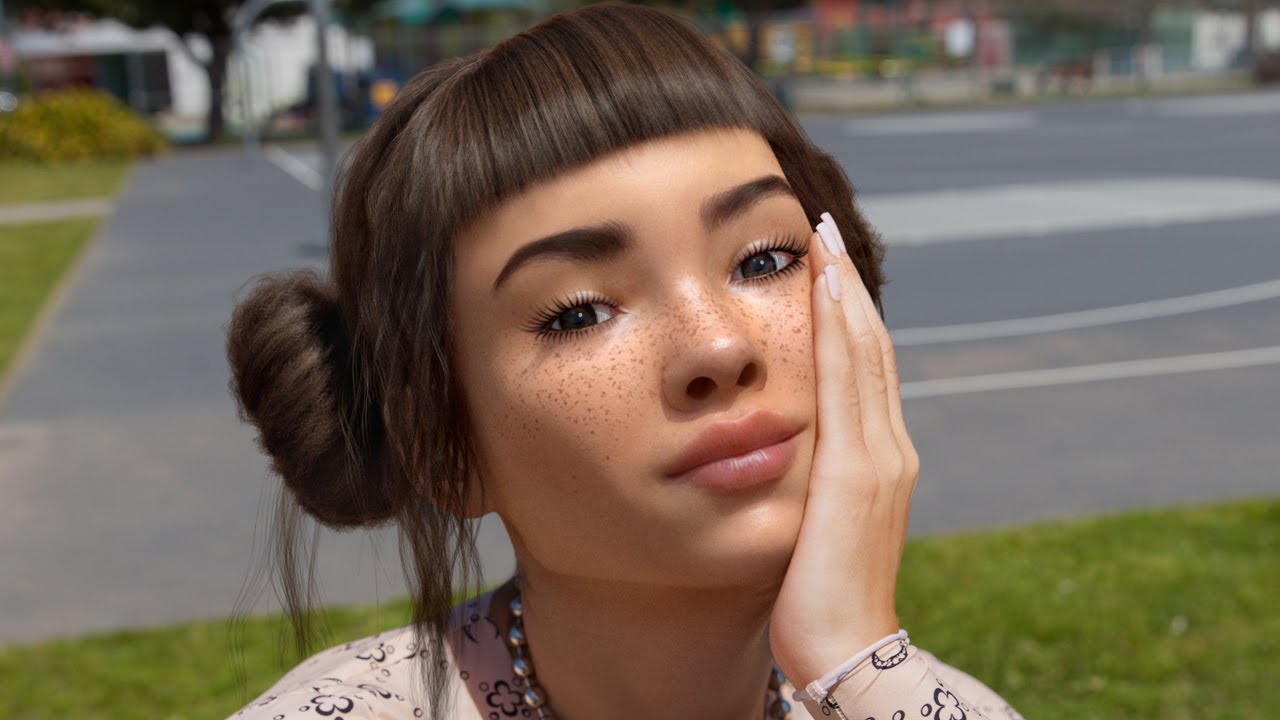
Lil Miquela, who is widely called the first AI-generated virtual influencer, made her debut in 2016 as a CGI creation from the Los Angeles-based business Brud. This 19-year-old virtual robot model and singer has drawn in millions of fans with her hyper-realistic Instagram presence, which includes high-fashion editorials, music releases, and social commentary on issues like identity and activism. Miquela has more than 2.5 million followers on Instagram and 3.4 million on TikTok. What makes her so appealing is that she can go beyond her digital origins and connect with people on an emotional level through scripted stories that feel very real. Her work with high-end brands like Prada, Calvin Klein, Dior, and Chanel has not only gone viral, but it has also generated global conversations about the ethics and future of influencer marketing.
In 2025, Lil Miquela is different since she has become a cultural icon with many sides. She has put out singles like "Not Mine" in 2017 and music videos for events like Lollapalooza's online festival in 2020. She now has 750,000 monthly Spotify listeners. Miquela was named one of TIME's 25 Most Influential People on the Internet in 2018. She continues to push boundaries by wearing cutting-edge sustainable fashion and speaking out for causes like mental health and racial justice. Brands use her for story-driven marketing that create real communities, showing that AI influencers can get people to interact with them and get press coverage. Miquela is the virtual fashion star with the longest-lasting legacy. She is still a model for how AI can make digital stories feel more real.
2. Shudu:
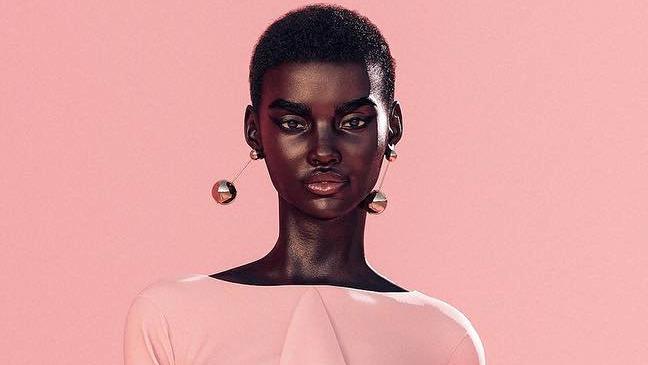
Shudu, the world's first digital supermodel, was created in 2017 by British photographer and 3D artist Cameron-James Wilson. This hyper-realistic AI-generated figure was originally a personal endeavor to promote many types of beauty, but she swiftly became famous throughout the world after her Instagram debut. With 239,000 followers, Shudu's polished, magazine-style posts on high-end gowns and editorial photoshoots have made her a mainstay in high fashion, representing modern design and inclusivity. Her 3D-rendered images that look like real people break the usual modeling standards and start crucial talks about representation in an industry that has been dominated by human faces for a long time.
In 2025, Shudu's influence is at its apex. In June 2024, she was on the cover of Vogue Czechoslovakia's Leaders issue, where she was called the "embodiment of elegance and modern design." Her work with high-end brands like Balmain, Fenty Beauty, BMW, Elle, and Cosmopolitan shows how versatile she is in luxury campaigns, from catwalk shows to beauty endorsements. The Diigitals, who made Shudu, stress her role in digital art by employing advanced CGI to combine photography and AI to create immersive experiences. For marketers, she is the most flexible model out there; she can be in any environment without any problems with logistics. She also inspires a new generation of virtual models that emphasize on empowerment and diversity.
3. Aitana Lopez:
The Clueless agency launched Aitana Lopez, Spain's digital beauty queen, in 2023 as a totally AI-generated virtual model to fill a need in the influencer market for endorsements that are reliable and don't cause any problems. This 25-year-old avatar from Barcelona has a beautiful body, a sun-kissed look, and a love of fitness and gaming. She has a large following on Instagram thanks to her colorful lifestyle postings. Aitana's material is carefully made to be positive and prevent scandals. It promotes body positivity and new technologies like AI in healthcare. Her growth shows how useful virtual models can be: they can let brands work together at a lower cost and be available around the clock.
In 2025, Aitana's status is set in stone with an Instagram score of 86/100 from Favikon analytics. This number shows that she is active in winter sports, training routines, and thoughts on her own progress. Key partnerships include fitness clothing and video game companies, where she shows off AI-enhanced images that look great with real-world photos. Aitana is a leader in ethical AI marketing. She challenges beauty standards by showing different body types and pushing for better cancer treatments using technology. Her success—making almost €10,000 a month for her creators—shows how virtual models like her are changing the economics of influencers. They provide businesses real, scalable stories without the volatility of human egos.
4. Imma:
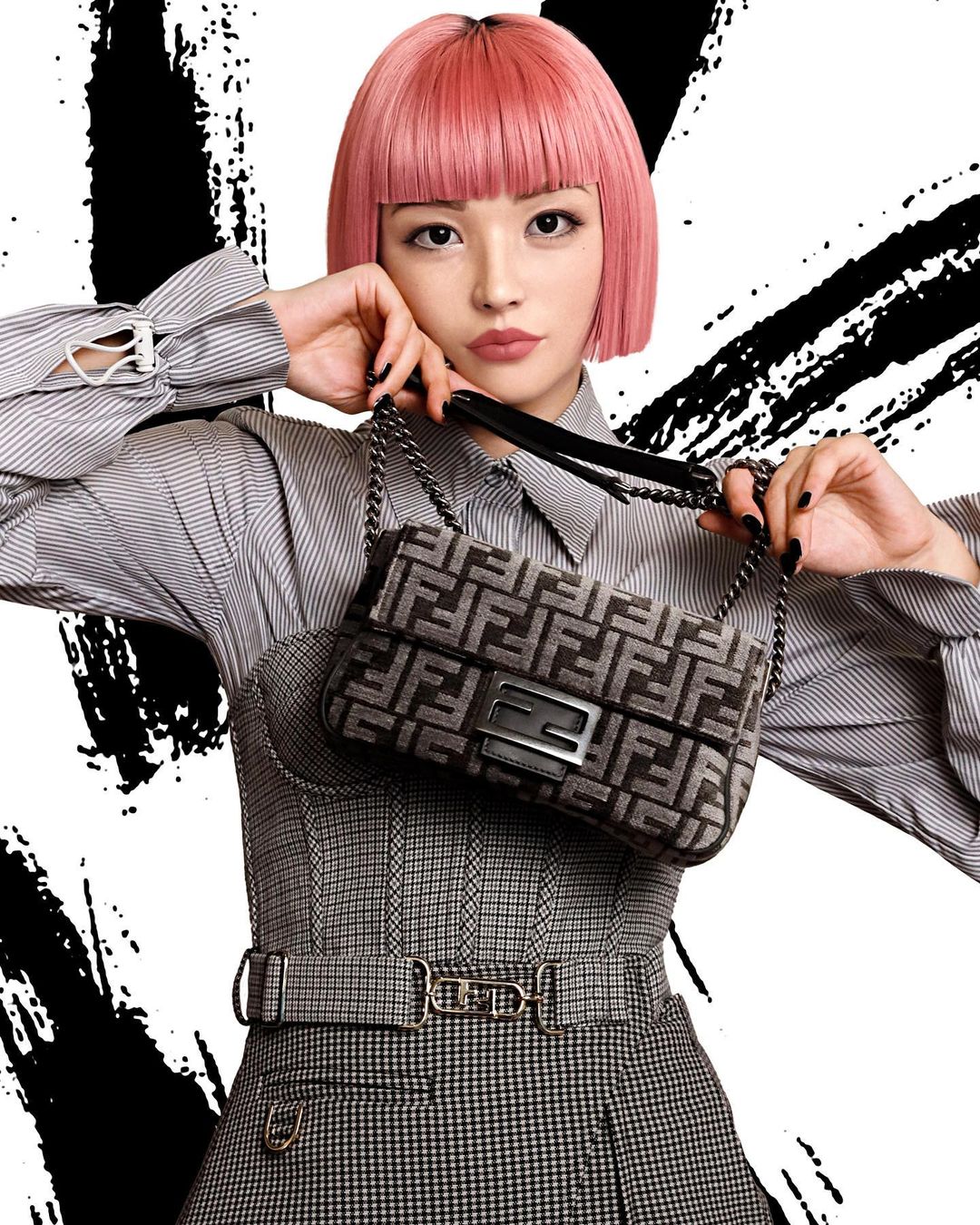
Imma, Japan's first virtual model, made her debut in July 2018 from Tokyo-based Aww Inc. She quickly caught people's attention with her trademark pink bob hairdo, simple style, and humorous attitude that mixes Japanese pop culture with worldwide trends. This AI-made influencer has 388,000 followers on Instagram and 471,000 on TikTok. They share everything from streetwear hauls to deep thoughts on how to improve themselves. They are a hyper-realistic mix of 3D modeling and AI-driven design. Imma was chosen as one of Japan Economics Entertainment's "New 100 Talent to Watch." Her material looks at emotional relationships and virtual life, which makes her a relatable figure in a tech-savvy society.
In 2025, Imma becomes more well-known thanks to high-profile events including a TED lecture in 2024 and being an ambassador for RAGE WORLD CHALLENGE esports events. Her work with Burberry, Adidas Tokyo, IKEA Japan, and Vogue Japan shows how good she is at bringing different cultures together, from fashion editorials to home decor advertisements. Imma's lasting power comes from her role in spreading positivity during tough times, such sending supportive comments during worldwide events and showing off Japanese art and entertainment. For brands, she is the best example of something that is both local and universal, getting people to interact with immersive, AI-optimized content that feels very personal.
5. Noonoouri:
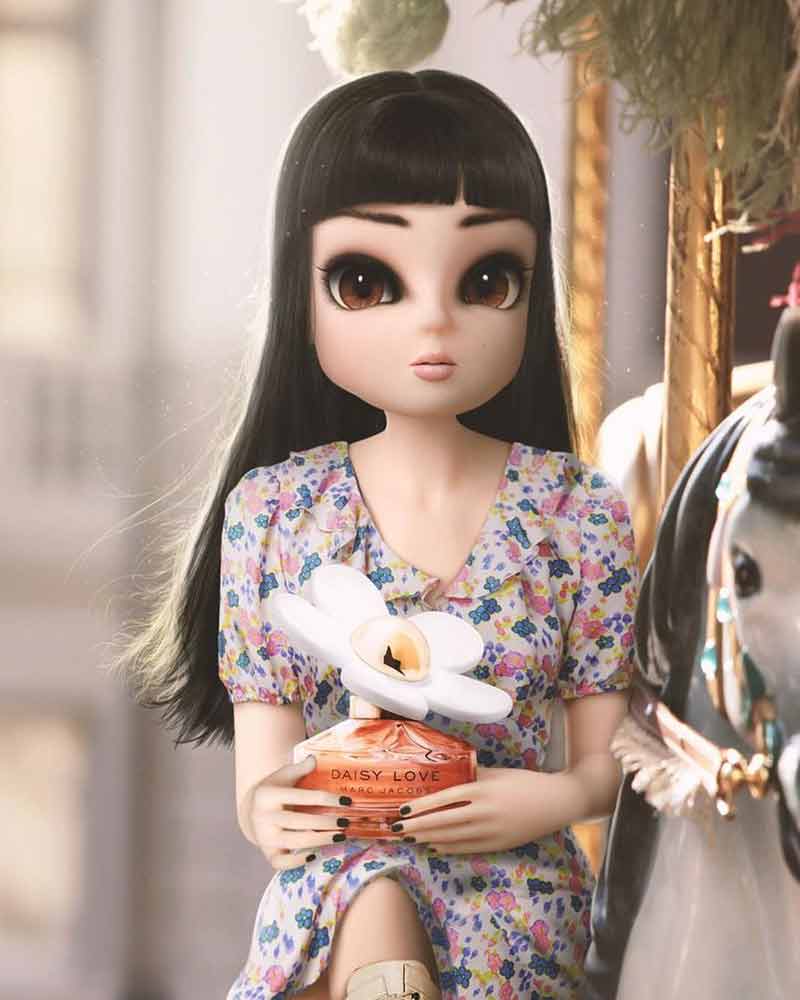
Noonoouri is a 19-year-old digital character developed in 2018 by German artist Joerg Zuber of Opium Effect. She has a comical appeal and high-end fashion sense that make her stand out in the field of virtual modeling. This AI-generated influencer has 485,000 Instagram followers and 73,000 TikTok followers. She has big, expressive eyes and a fun style. Along with her fashion-forward postings, she talks about social issues and sustainable design. Noonoouri's work connects digital art, activism, and youth culture, showing that virtual models may start debates that go beyond looks.
As 2025 goes on, Noonoouri's music career shines brighter. She signed a record deal with Warner Music in 2023 for her first single and is still represented by IMG Models. She has "walked" virtual runways and been in eco-friendly ads with Dior, Balenciaga, Valentino, Versace, and Bulgari. These collaborations show how much she cares about the health of the earth. Her makers say she is a way to present stories in new ways, using CGI to make experiences that Gen Z consumers can really get into. Noonoouri's lasting appeal comes from her ability to make AI feel like a person through comedy and compassion, making her a beloved figure in the world of ethical, forward-thinking design.
6. Rozy Sidus:
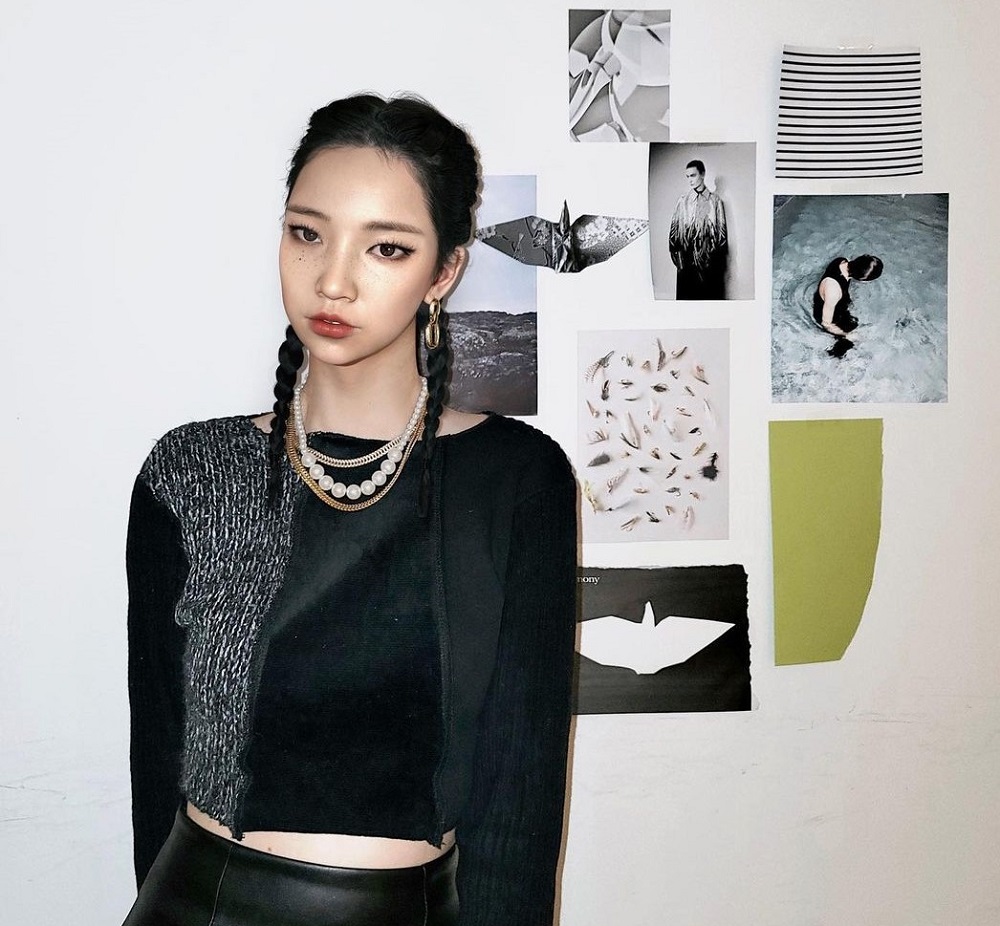
Studio X made Rozy, South Korea's "eternal 22-year-old" virtual influencer, in 2020 as a timeless digital inspiration for advertising. Rozy has been in more than 100 commercials, offering travel stories, fashion ideas, and lifestyle material that people all around the world can relate to. She has a youthful, adaptable beauty and a lively attitude. She has an Instagram score of 69.8 out of 100 and promotes companies through approachable comedy, DIY challenges, and initiatives like breast cancer awareness. She does all of this while keeping her fans fascinated with a mix of fantasy and reality.
In 2025, Rozy's concern on sustainability raises her prominence as she works with eco-friendly brands like Shinhan Life and American Tourister to create ethical fashion lines. BBC News wrote on her work in digital brand storytelling, and she shows how AI models may be used for advertising without getting tired. Her material mixes K-pop with useful tips, which gets a lot of people talking on sites like Instagram and TikTok. Rozy is a pioneer in Asia's virtual influencer arena. She not only models clothes, but she also promotes conscientious consumerism. This makes her an essential tool for businesses looking for real, always-on digital collaborations.
7. Kenza Layli:
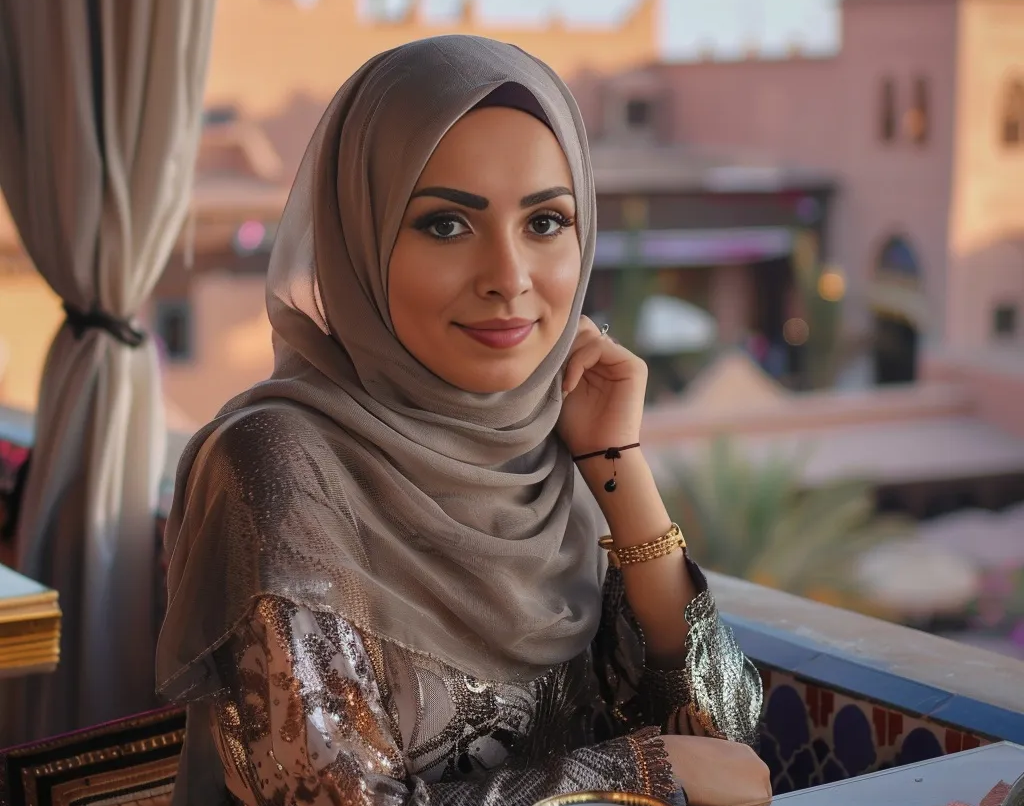
In 2023, Kenza Layli, the Moroccan digital muse, became a revolutionary AI influencer by combining her North African roots with over-the-top virtual storytelling. This graceful figure was made to promote cultural variety. She captivates with high-fashion advertisements that incorporate Moroccan aesthetics, from elaborate patterns to desert-inspired editorials. Her work makes people feel like they are part of a global community, and fashion and digital culture fans adore how she blends old and new ideas in a way that is both stylish and modern.
Kenza has become quite well-known for her unique style, and partnerships have shown her to be a leader in inclusive modeling. Her extremely realistic images and deep stories set her apart and sparked debates about AI's role in keeping cultural stories alive. Brands like her for campaigns that work across borders and use her calm temperament for luxury endorsements. Kenza Layli is a symbol of empowerment and is changing the way we think about virtual influence. She shows that AI can honor the past while paving the way for the future of beauty and fashion.
8. Mia Zelu:
Mia Zelu, a viral star from a digital agency that works with Aitana Lopez, made her Instagram debut in early 2024. She immediately gained notoriety for her realistic images and appearances at big events like Wimbledon. This AI-generated model is great at being creative. She can appear in any style, time, or place thanks to CGI and strategic storytelling. This makes her a marketer's dream for immersive brand integrations. Her content gets a lot of press attention because it mixes ordinary elegance with aspirational vibes that feel true.
Mia's Instagram score of 89.2/100 in 2025 shows that she is focused on being positive, growing as a person, and enjoying things like brunches and sunsets. Collaborations show how flexible she is, from fashion hauls to travel stories, and her U.S.-based identity builds community through real-life stories. Mia Zelu's ascension shows how AI can make influence more accessible to everyone. It gives marketers the chance to go viral without having to worry about people's schedules, and it puts her in a new role in the changing world of virtual models.
9. Bermuda:
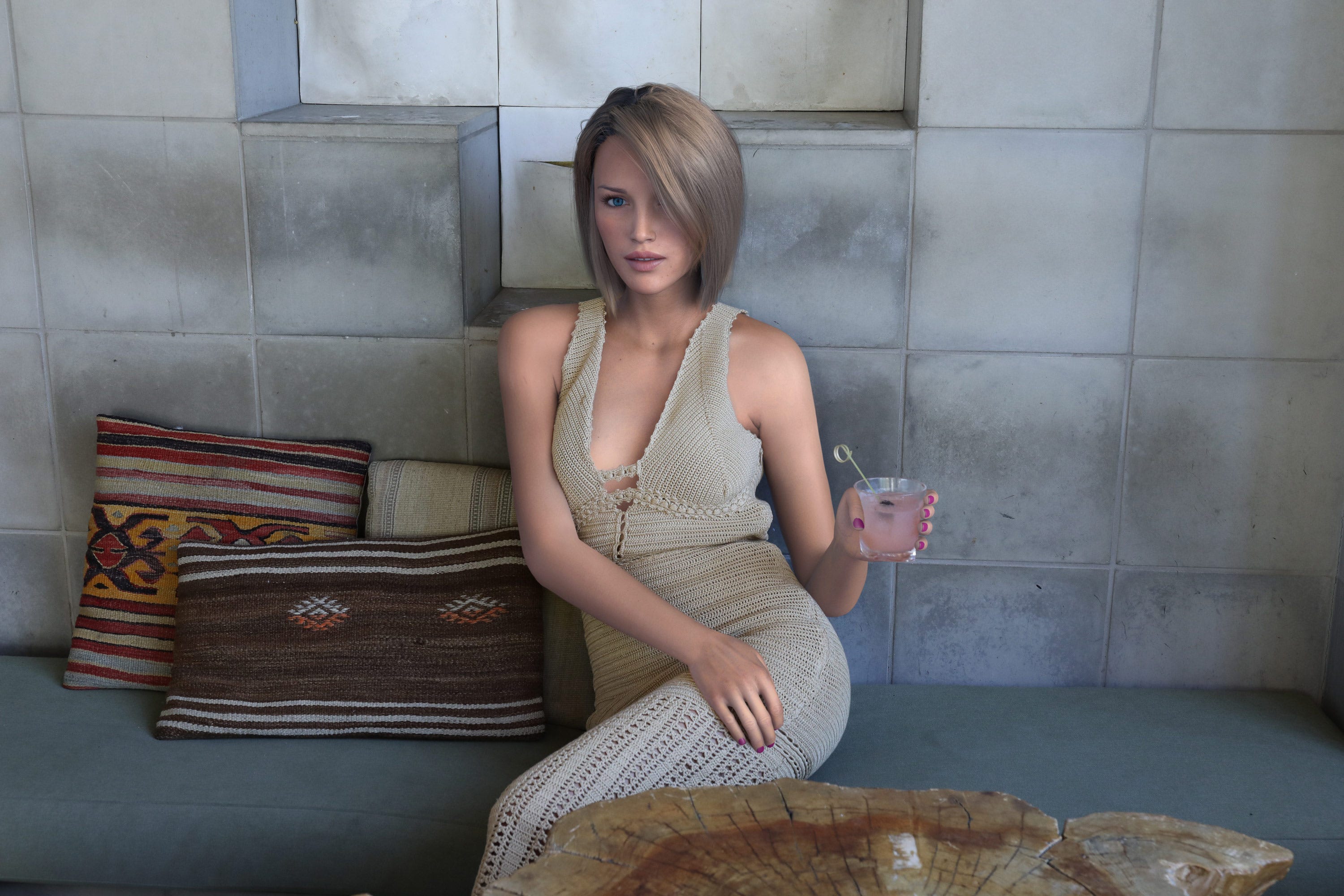
Bermuda, the daring cyberpunk "it girl" from Brud, the same people who made Lil Miquela, appeared as a rebellious character. Her edgy Instagram persona sparked arguments about politics, society, and AI ethics. This virtual influencer loves narrative-driven content, from bold fashion statements to scripted tales that get people talking. She has a futuristic look and isn't afraid to share her ideas. Her urban, masked look is popular with futurists and Gen Z, so she's a great choice for campaigns that need depth and attitude.
As 2025 goes on, Bermuda's controversial edge keeps her in the news as she works on cyberpunk-inspired art that pushes boundaries and gets people talking. Her part in edgier marketing shows how AI may grow as a character, with programmed arcs that build loyal followings. Brands use her for endorsements of urban fashion and innovation aimed at young people because they value her ability to start conversations. Bermuda shows how virtual models may change the way people think about digital influence by mixing revolt with relatability.
10. Leya Love:
Leya Love, the AI that supports peace and sustainability, was created in 2023 to connect technology with humanitarian causes. She became a calm virtual model with otherworldly beauty and a mission-driven mindset. Her posts about her peaceful lifestyle combine mindfulness, environmental activism, and ethical fashion, drawing in eco-conscious fans who want more than just pretty pictures. Leya's hyper-realistic interactions, which are powered by powerful AI, offer a relaxing digital haven in the middle of frantic social feeds. The focus is on love and living green.
In 2025, Leya's effect develops through partnerships that promote kinder worlds, such as campaigns for wellness and lines of clothing that are good for the environment. Her platform encourages people to take care of themselves and the earth, and it uses immersive images to connect with people on a deep level. Leya is a leader in purpose-driven virtual modeling. She shows that AI influencers can make the world a better place by giving firms real endorsements that fit with principles like conservation and inclusivity. This makes her a shining example of how to be a caring digital influencer.
Comments 0